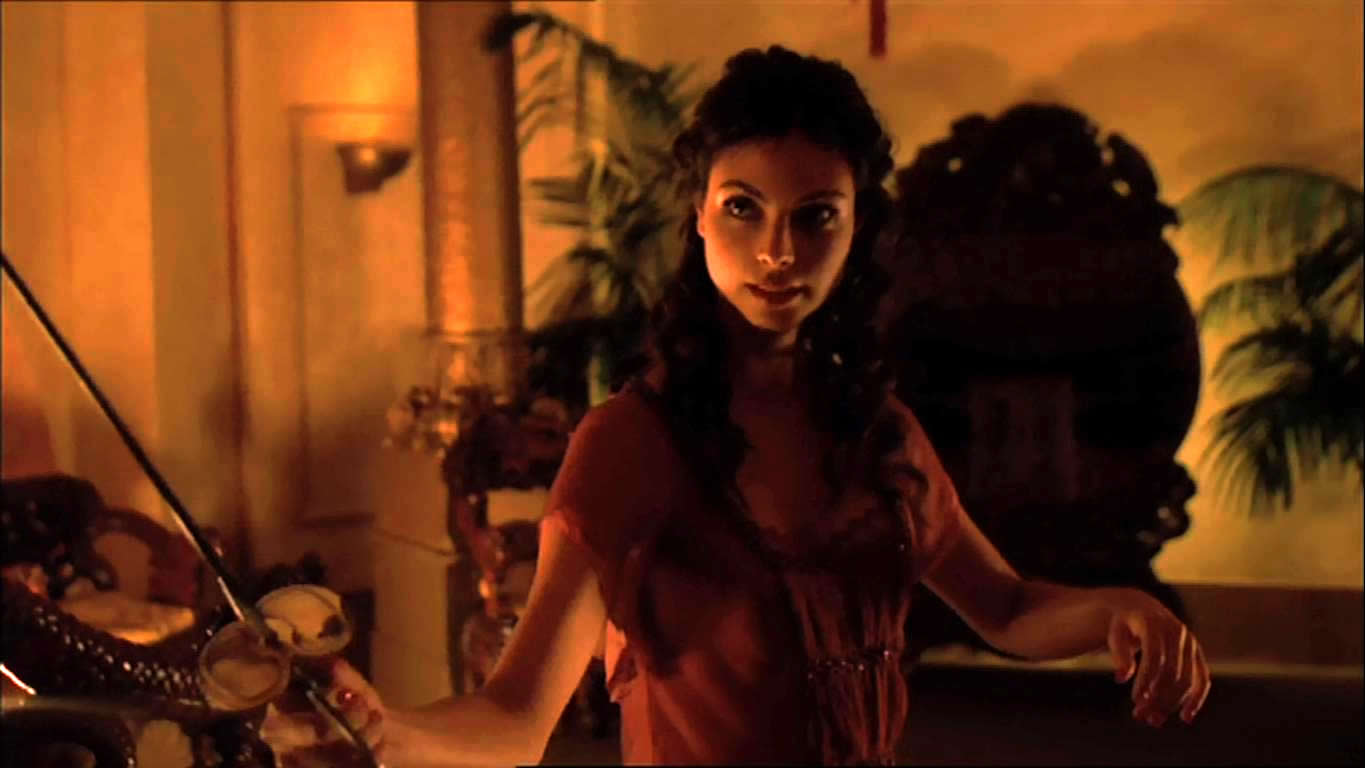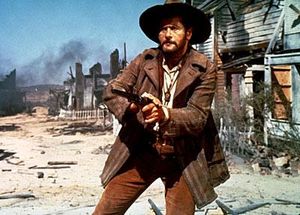

Themes of Firefly
Through its characters and non-conventional aspects, Firefly is able to incorporate many themes. Some, like its Western influence, seem intentional, but other themes, such as its critique on gender roles, are more subtle. Whether or not these less openly-delineated themes were planned by Josh Whedon or not are irrelevant: a work is not always dependent upon the creator’s motives. What is more important is the discussion it provides with the viewers and even if Firefly’s themes were a result of its need to be entertaining and to turn a profit, the issues it reveals are credible in their own right. Below is a brief listing of three themes discussed in the television series.
The Space Opera and the Western
For more information, please follow this link to Firefly the Space Opera.

Centralized Power and Egalitarianism
The basis of the plot is dependent on a disregard for repressive authority. This standpoint especially appeals to American sentiments where a “preoccupation with rights” (Brinkley) makes the individual suspicious of governmental centralization. The rights which the crew of “Serenity” claims, though, are often times illegal and involve stealing for a profit. In Firefly as well as other contemporary literature and film, this “Robin Hood” syndrome of stealing from the rich is often employed for mass appeal instead of cultural critique. Several popular films such as the Matrix trilogy and the Zorro series capitalized on this glorified egalitarianism (“Category: Robin Hood”). In Firefly, moral equality of all humans is discussed throughout the series such as when the crew feels justified in protecting a whorehouse in “Heart of Gold” (“Heart of Gold (Firefly Episode)”), but this is slightly confusing when combined with the western standard of “shoot first, ask later” (“Western (genre)”). Firefly’s message is not one of helping humans to a more enlightened state as much as one that in survival, all beings are equal. The Alliance does not have a right to subdue Independents, but an Independent’s death is nothing more than an Alliance member’s death in the end.


Sexual Roles
Firefly is a popular television series, and part of its popularity is maintained by portraying Western sexual norms. For example, the fundamental aspects of Mal and Inara’s relationship could have happened in any setting: both the man and the woman felt an attraction which the man awkwardly pursued while maintaining the protective, dominant role which the woman counters by feigning a lack of interest. However, as Michelle Sagara West points out in her essay “More of a Marriage of Convenience”, the Washburne’s marriage deviates from the traditional televised marriage (Franson “Shoot, Don’t Talk”). Instead of being petty and argumentative, Zoë and Wash demonstrate communication, open discussions, and flawed, “real people” (Franson “Shoot, Don’t Talk”) equally working for a relationship.
The women on board the ship provide two important distinctions from the accepted feminine sexual role, especially in a science fiction setting. Zoë is a proactive warrior, but does not use her warrior status in a feminine, sexual way as would other televised heroines such as Xena, Warrior Princess. Instead, she takes a dominant, traditionally-masculine role in her marriage to Wash (“Firefly (TV Series)”) and does not exhibit feminine sexuality in her manner of dress or attitude around men (“Our Mrs. Reynolds (Firefly Episode)”).
From the beginning, the respectable status of the Companion places Inara in a non-traditional female role. The Companion’s use of sexual therapy as a respected, elite occupation is an issue explored in Greek, Italian, German, and Japanese culture but which is taboo and labeled negatively as a prostitute in the American-British tradition (Franson “Space Hooker?”). Inara’s dignified, successful control of her sexuality places the woman in a sexually-powerful and dominant position. Finally, Inara and other female Companions like Nandi accept both female and male clients, so homosexual and heterosexual situations are equally acceptable.

Other themes
- The rise of China and the West as superpowers
- Socialization and importance of medicine
- Ethics of medical experimentation
- Loyalty
- The relationship of morality, honor, and survival

Links
Last Modified 24 April 2006 Created by Julie Rooney julierooney_2009@depauw.edu
Contact me